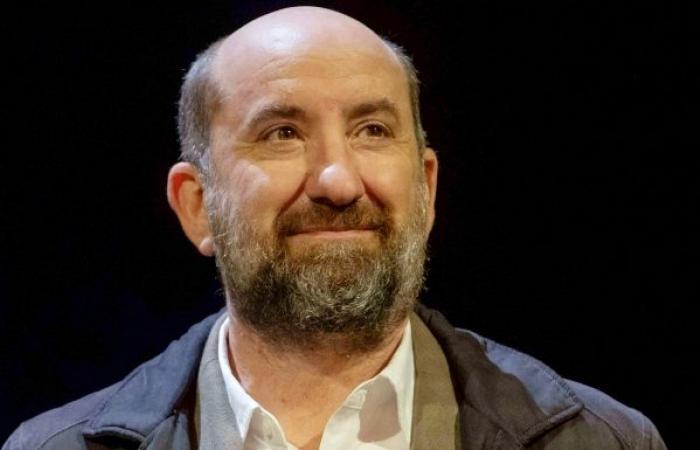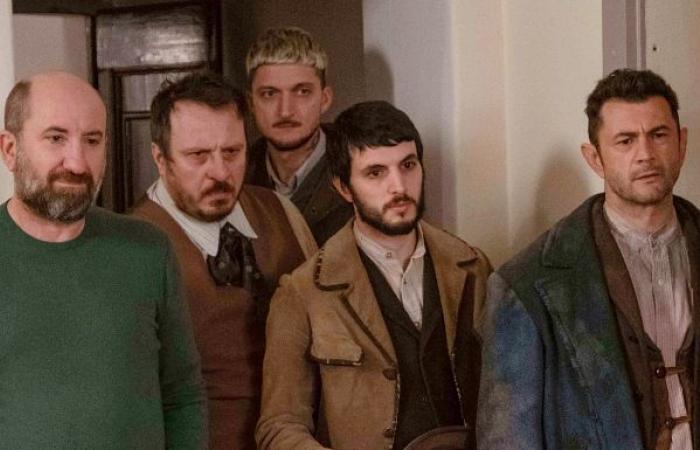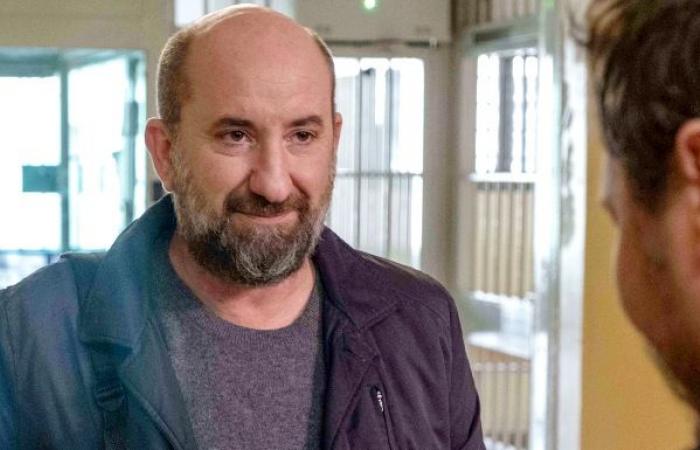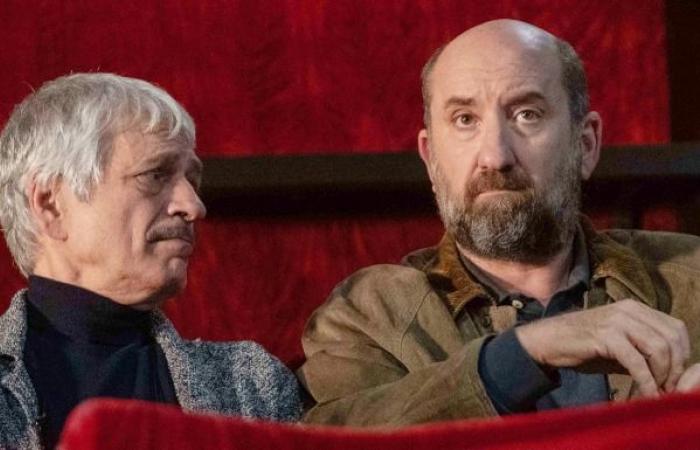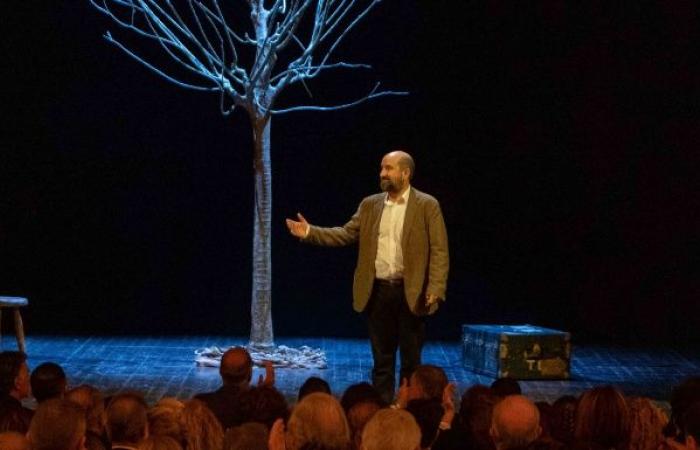Users: 0
Riccardo Milani presents his latest work, “Obrigado, Rapazes”, a comedy starring Antonio Albanese and Fabrizio Bentivoglio.
This friendly comedy begins with a noisy sexual furore in a more than obvious anticipation of the verbiage that accompanies a monumental orgasm, the kind that only happens in pornographic films where the truth gives way to the false in order to better convey, I would even say, drive, the message in the little heads of those who spend their lives watching others eat to satisfy their hunger. The film, not porn but the one that interests us here, is called “Grazie Ragazzi” (Thanks, Guys), 2022, and was directed by the Italian Riccardo Milani. As we said, in the beginning was the verb. We are in a dubbing studio and those who give voice to this feigned excitement are two actors, a man and a woman, with the male character shortly after being catapulted into the reality of practical things in the role of protagonist of a thorny mission.
GHOSTS OF FREEDOM
Our man’s name is Antonio (Antonio Albanese) and he started his career as a serious actor, but when he found himself unemployed he had to take on odd jobs like the one described to survive his gloomy day to day life. He lives in a house next to a railway, not far from the airport, and whenever we find him in the morning, in bed and barely sleeping, a train or a plane invariably makes the walls and windows of his apartment shake. The intermittent, bankrupt actor continues to have a relationship with a former professional colleague, apparently more successful. The two have a somewhat ambiguous relationship in which each person’s egos intertwine, not always in the best way.
Be that as it may, at a certain point an opportunity arises that, despite legitimate doubts, Antonio ends up accepting: teaching acting classes in a penitentiary to a group of volunteers who were willing to share this unique experience. From now on, the film invests vigorously in addressing the imponderables that a situation of this nature generates. The first verbal confrontations with the inmates (and some physical ones) will be worthy of the best human comedy designed to characterize the profile and personality of each character and also their future positioning in the main lines of the action. It is about comparing the point of view of someone who comes from the outside with the points of view of those who, from the inside, look at that figure that is foreign to the prison environment.
Provocation after provocation, little by little the conflicts generated are mitigated in favor of an intimate circle of what we can classify as good comrades who, although not just flesh and blood, have at least the gift of knowing what role each one can play. in a possible learning of scenic language with a view to future participation in a theater play. In the first phase we witness a naive but genuine representation, still and always focused on the interior of the chain, a simple and brief sketch humorous with guaranteed success among his peers and prison authorities, largely because it is half fable, half burlesque.
Following this brief flash, the director and the screenwriters will introduce, in what until then seemed a mere fiction critical of penal conditions, a sharp and witty dose of humor about behaviors confined in a system where freedom was more than just monitored. At the same time, they insert a first element of fear, of real threat to the dramatic art teacher and the cell of dramatic furious men: one of the inmates, with clear ascendancy over the others, will force one of the actors to abandon the group, then appearing as your replacement. However, the way he explains the prison law to Antonio constitutes the heaviest and most revealing moment of the violence that takes place there and which does not necessarily involve just physical catharsis.
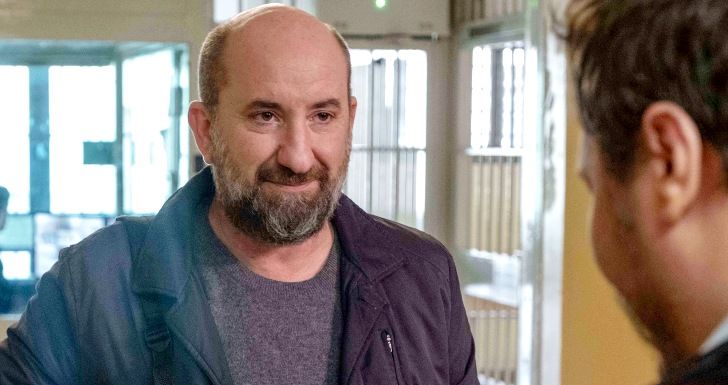

Among the many episodes that follow this occupation of the other’s place, that turning point could be the end of the redemptive experience, but no. In fact, Antonio had already realized before that the way to unite those ragazzi, young and less young boys, came from the understanding that they were day after day, especially night after night, waiting to overcome the routines of incarceration, hoping for anything that would lead them to glimpse a glimpse of lost freedom. Basically, the illusion of freedom that is naturally impossible in the face of the constraints of imposed discipline.
He thus realized that the play that could best adapt to the busy group rehearsals and his general feeling would be one included in the Theater of the Absurd. That is why he will choose, in a moment of despair followed by intellectual enlightenment, the “En Attendant Godot” (Waiting for Godot), the existentialist classic originally written in French by the Englishman Samuel Beckett (1906-1989). At great cost and against the grain, Antonio will manage to carry out his mission to the end and the play will end up being premiered, successfully performed and requested in several Italian cities and prestigious institutions, such as the Teatro Argentina in Rome. . Play in two acts, featuring four characters: Vladimir, Estragon, Pozzo and Lucky. All of them will be played by four inmates, namely, Aziz (Giacomo Ferrara), Diego (Vinicio Marchioni), Damiano (Andrea Lattanzi) and Mignolo (Giorgio Montanini).
Added to these is a delightful figure in his silence and imposing presence, the Romanian Radu (Bogdan Iordachioiu), who has one of the most surreal and fun moments in the film when he appears crossing the stage under a blanket that covers him. the head and part of the body, saying at the end and behind the scenes: “I am Godot”. Left out of the equation was Christian (Gerhard Koloneci), pushed by Diego’s arrogance, the sign that the law of the jungle prevailed even when sympathy seemed to begin to emerge from the mouths and minds of these men. In fact, the simple fact of being able to leave prison for a brief moment was seen as a blessing that could and should be obtained at any price.
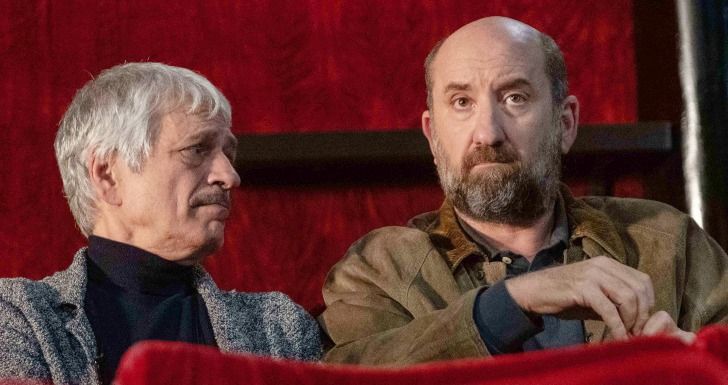

They experienced the possibility of feeling the freedom they were waiting for, just as Samuel Beckett’s characters were waiting for Godot. But, in both cases, in vain. After the acclaim from different audiences, upon returning to prison they began to feel even more than before the arrogance of the guards in the pure and harsh fulfillment of a power that often went beyond what was basic and necessary. Naturally, this clash would trigger the prospect, announced subliminally, of an escape. In terms of fictional interaction, the film runs smoothly until the moment in which this escape is consolidated, giving way to a last quarter of an hour in which a somewhat condescending view of the group prevails.
It doesn’t irreversibly compromise what we had seen so far, but I always hoped, not for Godot who would never appear, but for the maintenance of the disenchanted vision that Riccardo Milani had demonstrated up until that point in his controlled cynicism. Because it cannot be said that the script is kind to the characters present. The defects of those serving sentences were never erased by the virtues they demonstrated as men in the body of unlikely actors, in the exercise of a redemptive pretense. Therefore, I would like the film to be more cynical and to take on the critical stance it adopted in the film’s central core until the very end. And there was no need to copy the mastery of Billy Wilder in one of his greatest works, “Stalag 17” (Hell on Earth), 1953. Wilder used the mechanisms of comedy to tell us about the scoundrel life of prisoners of war in a Nazi concentration camp. , which very effectively does not paint with bright colors or arguments that would make it fall into the trap of moralizing demagoguery.
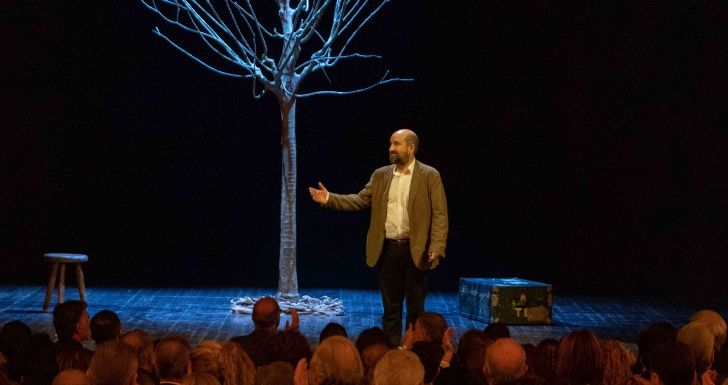

In any case, “Obrigado, Rapazes” remains in our memory as a consistent work, with top-notch actors doing their role very well and with a rhythm that never distracts us from the essential, the vision of what condemned men can do, or not, to free themselves from physical and mental shackles. Paraphrasing Samuel Beckett on the last page and in the last dialogue of his play:
Vladimir: Alors, where are you? (So let’s go?)
Estragon: Allons-y (Yes, let’s go.)
And it is said…!
Thanks, Guys, the Critique
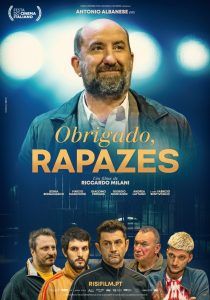

Movie title: Grazie Ragazzi
Director(s): Riccardo Milani
Actor(s): Antonio Albanese, Fabrizio Bentivoglio, Sonia Bergamasco, Giacomo Ferrara
Genre: Comedy, 2023, 117min
Conclusion:
PROS: In 2023, protagonist Antonio Albanese received the Nastro D’Argentoassigned by Sindacato Nazionale Giornalisti Cinematografici Italiani.
Us Ciak d’Oro (award from the Italian film magazine), the highlight was for the collective, as it received the Award for Best Comedy, an award that seems more fair given the production values that the main cast and production offer us.
CONS: Nothing special.
Tags: Guys Review Antonio Albanese finds humor fun comedy Riccardo Milani
--
